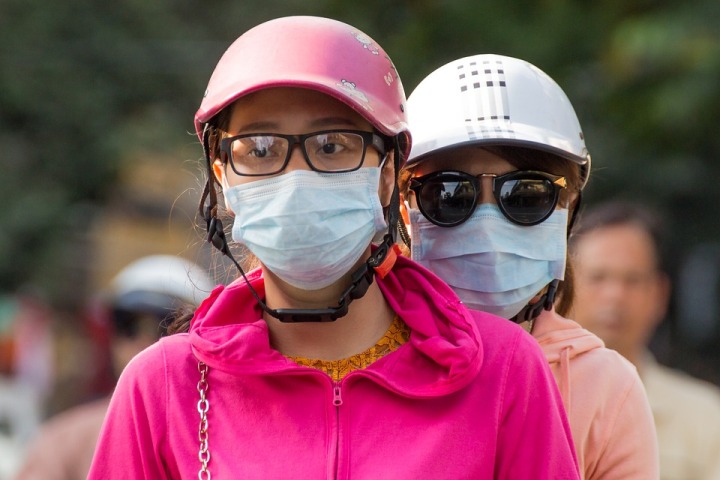Pollution in Indonesia shaving five years from life expectancy: Study

- Country:
- Indonesia
Indonesia's air quality has deteriorated from among the cleanest in the world to one of the most polluted over the past two decades, shaving five years from life expectancy in some regions, researchers say. The study by the Energy Policy Institute at the University of Chicago says an increase in coal-fired power stations, burning of land for plantation agriculture and rising car ownership is responsible for the worsening pollution in the world's fourth-most populous country.
The greatest spike happened in the last few years with air pollution more than doubling between 2013 and 2016, it said. The burden on public health has become one of the highest in the world, behind only India, China, Bangladesh and Pakistan.
"High air pollution is now undermining Indonesians' health," said researchers Michael Greenstone and Qing Fan. "In 1998, air pollution barely impacted the life expectancy of Indonesians. In fact, even in 2013, it shaved only a few months off of average life expectancy."
According to the researchers, sustained high concentrations of particulate matter in the air people breath will cut 2.3 years from lifespans in the capital, Jakarta. On the islands of Sumatra and Borneo, both of which suffer land fires every year, the expected reduction in lifespans is four years on average.
It rises to 4.8 years for the southern Sumatran city of Palembang and 5.6 years for its neighbouring Ogan Komering Ilir district. Indonesia's annual dry season fires were particularly disastrous in 2015, burning 2.6 million hectares (10,000 square miles) of land and spreading health-damaging haze across Indonesia, Singapore, southern Thailand and Malaysia.
The World Bank estimated the fires cost Indonesia USD 16 billion and a Harvard and Columbia study estimated the haze hastened 100,000 deaths in the region. Wetter weather resulted in reduced areas of land burning in the following three years, though the area burned jumped again last year to more than 510,000 hectares (2,000 square miles).
The University of Chicago study said the air pollution effects are widespread. Small particles carried by the wind from land fires at times contribute 31 per cent of Jakarta's "PM2.5" — tiny particles that cause haze when levels are elevated and which are linked to lung cancer, respiratory illness and other diseases.
Citing the experience of cities such as London, Osaka and Los Angeles in reducing disastrous air pollution and China's more recent progress, the researchers said Indonesia's pollution problem is "solvable" through stricter regulation and stronger enforcement.
(With inputs from agencies.)
- READ MORE ON:
- Regions of Denmark
- Regions of Chile
- Regions of France
- South Jakarta
- North Jakarta
- Persija Jakarta
- Normandy landings
- Moon landing
- Land Rover
- The University of Chicago
- Marshall Islands
- Solomon Islands
- Channel Islands
- District of Columbia
- Purulia district
- Indonesia
- world
- regions
- Jakarta
- researchers
ALSO READ
China stocks edge up in thin trade; HK market closed
In a first, Taiwan's Presidential Office runs war games to simulate a China emergency
Japan and China Discuss Strategic Cooperation Amid Regional Tensions
World Bank's Optimistic Forecast for China's GDP Growth
China's Mega Dam Project: A Hydropower Giant on the Tibetan Plateau










